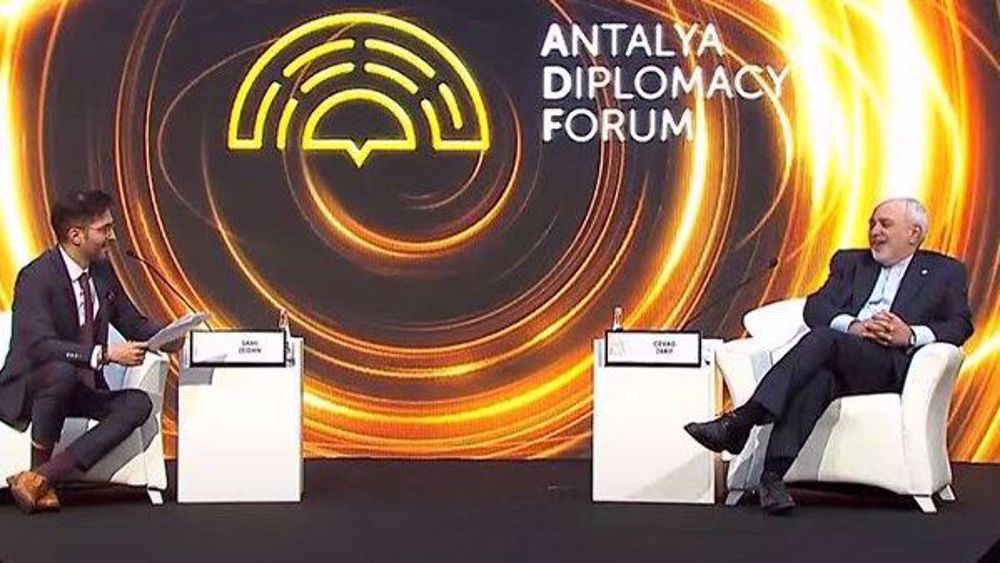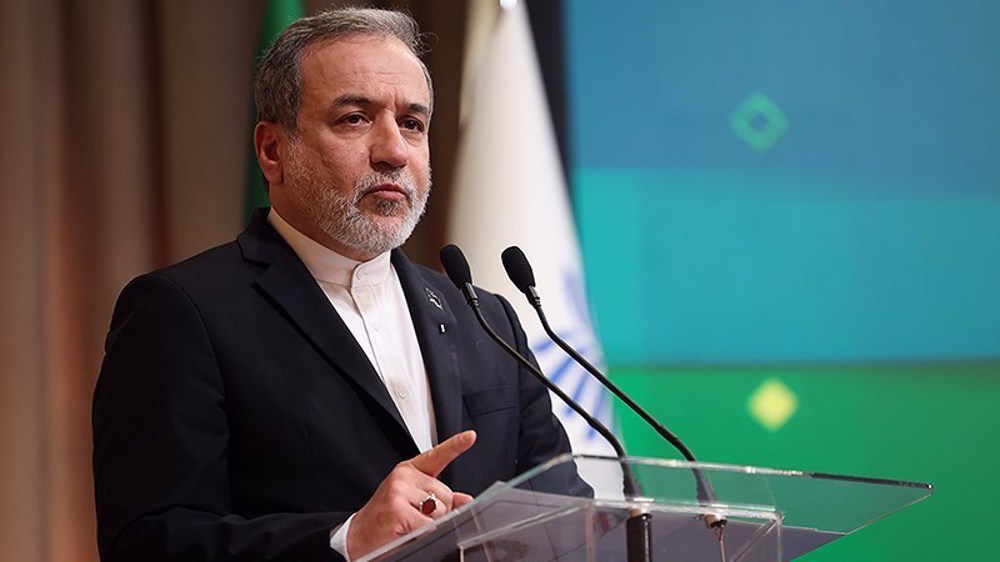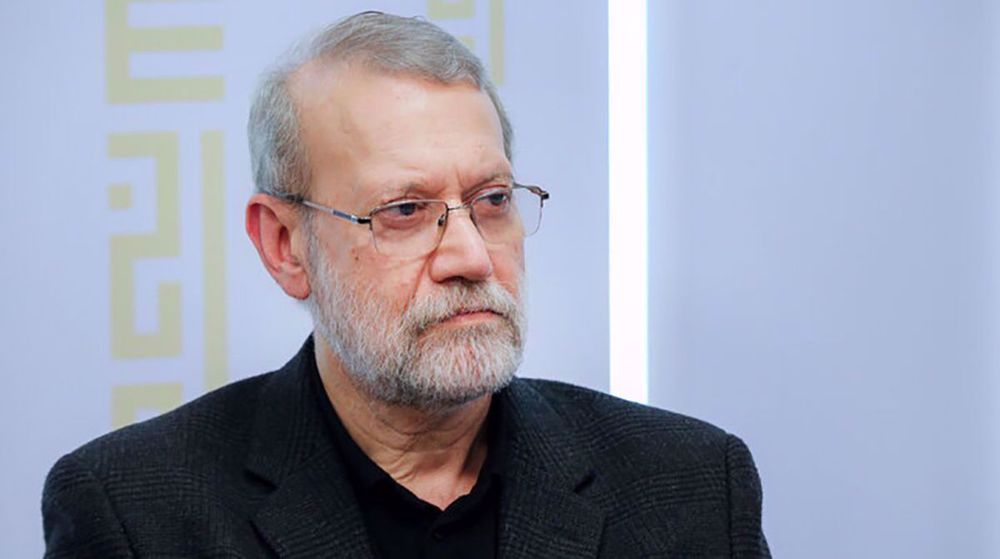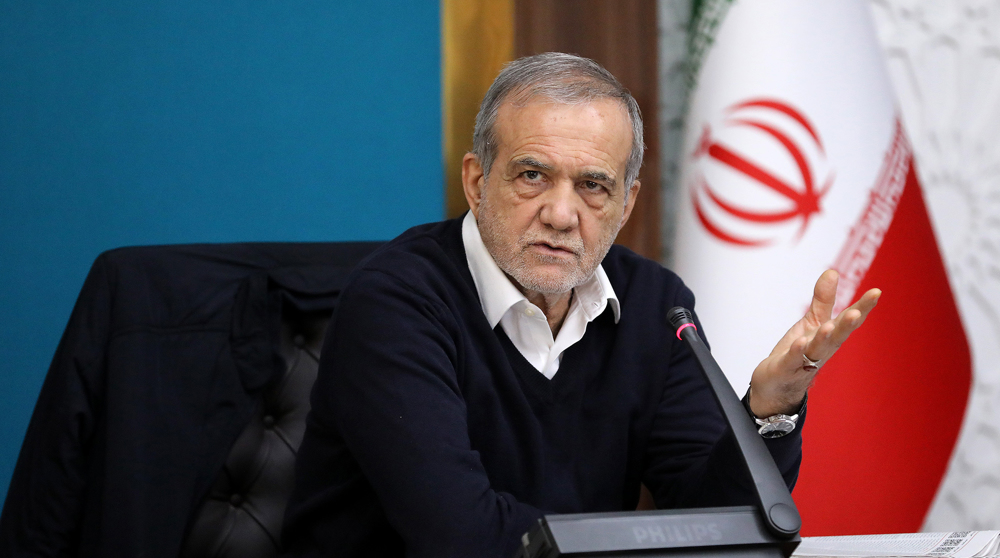Iran, P4+1 likely to reach agreement on JCPOA revival before Rouhani’s administration leaves office: FM Zarif
Iranian Foreign Minister Mohammad Javad Zarif says Tehran and the remaining signatories to the 2015 Iran nuclear deal, officially known as the Joint Comprehensive Plan of Action (JCPOA), are likely to agree on ways to revive the agreement before the end of President Hassan Rouhani’s term in office in mid-August.
“Negotiations on the JCPAO [revival] are underway [in the Australian capital of Vienna]. There is a good chance that an agreement will be made before the end of our administration. We will leave office in mid-August (and hand over the government) and I think that it is highly likely that we will be able to reach an agreement long before this date,” Zarif said in an interview on the sidelines of the Antalya Diplomacy Forum in Turkey on Saturday, Fars news agency reported.
He added that the parties are seeking to settle their issues of dispute, but noted that the US must come to the realization that it was Washington that left the agreement with the purpose of advancing its own goals which it failed to realize.
“Now that they want to return to the agreement, they cannot achieve through the negotiating table those objectives they sought to achieve via the economic war…I can say we have reached the point [of reaching an agreement] to some extent but we are yet to reach the [final] conclusion,” the top Iranian diplomat stated.
Representatives of Iran and the other five signatories to the nuclear agreement, namely Britain, France, Germany, Russia and China, have been engaged in the Vienna process since early April with the purpose of finding ways to bring the United States back to the deal and prepare the ground for its full implementation.
A US delegation is also in the Austrian capital, but it is not attending the discussions directly because the United States is not a party to the nuclear accord any more. It has though held separate talks with the participant delegations, except Iran.
Trump abandoned the deal and reimposed the anti-Iran sanctions that the JCPOA had lifted. He also placed additional sanctions on Iran under other pretexts not related to the nuclear case as part of the “maximum pressure” campaign.
Following a year of strategic patience, Iran resorted to its legal rights stipulated in Article 26 of the JCPOA, which grants a party the right to suspend its contractual commitments in case of non-compliance by other signatories, and suspend some of the restrictions imposed on its nuclear energy program.
Now, the new US administration says it wants to compensate for Trump’s mistake and rejoin the deal, but it is showing an overriding propensity for maintaining some of the sanctions as a tool of pressure.
Tehran insists that all sanctions should first be removed in a verifiable manner before the Islamic Republic reverses its remedial measures.
Verification of US commitment to JCPOA, main issue in Vienna talks
Zarif further pointed to the main outstanding issues in the ongoing Vienna talks and said that Iran’s compliance with its commitments is verified by the International Atomic Energy Agency (IAEA) but it is still unclear how the Islamic Republic can verify the US fulfillment of its obligations.
“We complied with our commitments even after the US withdrawal for a whole year. The US did not remain committed to its obligations, so the party that needs to give us assurances is the United States and this is an obstacle in the path of the negotiations,” the top Iranian diplomat pointed out.
Biden seeks to use failed Trump’s policies as leverage
Zarif said President Joe Biden has understood that his predecessor’s policy on Iran has failed “but still he wants to use these policies as leverage.”
“And that is why issues of misunderstanding emerge. I think that they have to abandon the idea that sanctions are an asset. Sanctions are illegal,” he said.
“Unfortunately, the European countries have been forced into succumbing to US sanctions policies but it doesn't mean that they approve of this policy and accepted it,” the Iranian foreign minister added.
The United States must understand that it “has been isolated completely,” he emphasized and said, “Although the US can still impose its own economic power on financial institutions and imposes sanctions on them, it lacks legitimacy in the international community for such measures.”
Zarif, who is in Turkey to attend the international forum on diplomacy, held separate meetings on Saturday with foreign ministers of Pakistan, Kuwait and Tajikistan, Makhdoom Shah Mahmood Qureshi, Sheikh Ahmad Nasser al-Mohammed al-Ahmed al-Jaber Al Sabah and Sirojiddin Muhriddin, respectively. He also held talks with Turkey's Foreign Minister Mevlut Cavusoglu and Poland's Foreign Minister Zbigniew Rau.
In a Friday meeting between Zarif and High Representative of the European Union Josep Borrell, the Iranian foreign minister once again reiterated that the JCPOA would not be renegotiated at all, saying all the sanctions imposed and re-imposed by the United States against Tehran should be lifted.
VIDEO | Exclusive: Armed Forces spokesman says Iran will never give in to US pressure amid talks
Iran‑US talks ‘good opportunity’ to resolve nuclear issue: President Pezeshkian
Iran seeks result-oriented talks, progress depends on US seriousness: Araghchi
VIDEO | Efforts to stabilize Gaza Strip hitting diplomatic wall
Decades of broken promises, aggression, Israeli pressure leave Iran no reason to trust US: Analyst
Iran to unveil its first indigenous radar imaging satellite soon
North Korea's Kim says military will ‘widen fighting front’ in 2026
VIDEO | Propaganda channels promote fake death toll as Iran releases official victims' list of terror attack












 This makes it easy to access the Press TV website
This makes it easy to access the Press TV website